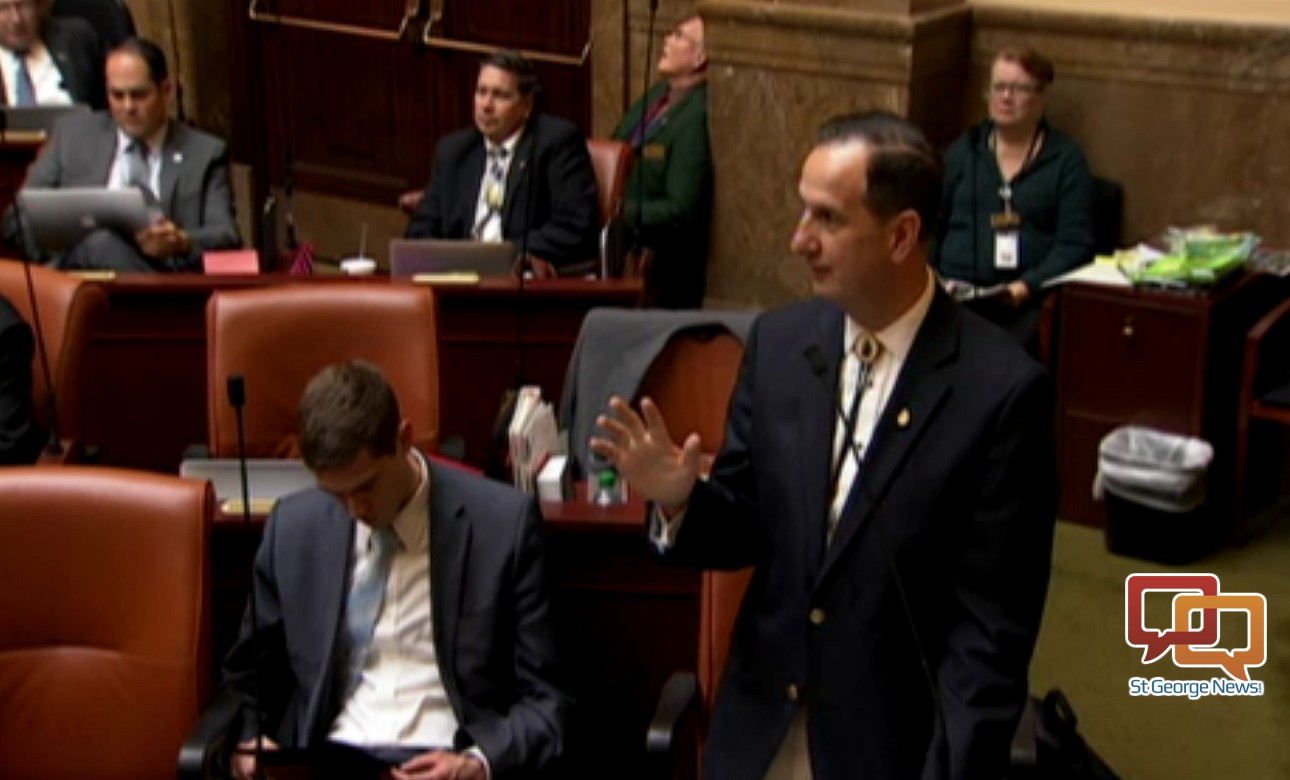
ST. GEORGE — A trio of bills tweaking the ballot initiative process are on their way to the governor’s desk after passing the Legislature.
House Bills 133, 145 and 195 impact when successful ballot initiatives can take effect, when signatures need to be turned in, that they must be posted online and the number needed to get an initiative on the ballot.
These bills and others dealing with ballot initiatives came in the wake last year’s election that saw the passage of citizen initiatives regarding medical marijuana, Medicaid expansion and gerrymandering.
The medical marijuana initiative, better known as Proposition 2, went into effect at the beginning of December with a special legislative session held right after so lawmakers could pass a compromise bill that replaced it.
Read more: Lawmakers propose bills that would tweak ballot initiative process
For ballot initiatives voted into law, HB 133, authored by Rep. Brad Daw, R-Orem, moves their effective date to 60 days following a legislative session.

That places an intervening legislative session between Election Day and when the initiative is enacted so the Legislature has time to debate and modify the initiative as needed, Daw said.
“As we’ve seen this last year, it would have been nice had we if some negotiation, some transparency, some ability to make adjustments to some of the propositions that passed in a much more transparent setting,” Daw said while discussing his bill on the House floor last week.
Instead of having to rush into a special session as they did with Proposition 2, Daw said the extra time allotted under the bill will allow lawmakers the ability to adequately deliberate and address issues where an initiative may come in conflict with pre-existing law or call for a tax hike.
Read more: Read more: Legislature rejiggers Proposition 2, the medical cannabis initiative passed by voters
Rep Jennifer Dailey-Provost, D-Salt Lake City, spoke against the bill, saying the Legislature needs to respect the voice of the people.
“We are more than able to address issues as they come, but (we) don’t have any business limiting the voice of the voters in our state,” Dailey-Provost said.
HB 133 passed the House with a 50-20 vote and the Senate with a 22-5 vote.

HB 145, sponsored by Rep. Norm Thurston, R-Provo, requires county clerks to post the names of initiative petition signers on a public website. It also places a 30-day deadline on when signed petition packets must be turned into the clerk.
The bill also makes it a misdemeanor to falsify a name on the petition.
Opponents of the bill expressed concern about having an initiative signer’s name readily viewable on a public website.
Thurston said the names are already public record and can be acquired through the county clerk’s office. This way a person can also more easily see if their named was forged or not, he said.
HB 145 passed the House in a 50-21 vote and the Senate 19-6 vote. The House concurred with changes made to the bill while in the Senate before sending into to the governor’s office.
HB 195, sponsored by Rep. Stephen Handy, changes the threshold needed for a statewide initiative to get on the ballot from the number of voters in a prior presidential election to a percentage of active voters in the state.
According the bill, the number of signatures must be equal to 4 percent of the active voters in Utah on Jan. 1 following the last regular election from across at least 26 senate districts.
Ballot referendums would require 8 percent of the active voters in the state.
The House passed HB 196 with a 58-6 voted follow by passage in the Senate with a 26-1 vote. The House also concurred with changes made to the bill in the Senate.
Among those opposed to the initiative-tweaking bills is the Alliance for a Better Utah watchdog group.
Lauren Simpson, policy director for the watchdog group, issued the following statement:
In combination, these are bad bills meant to hamper the right of Utahns to create their own laws through the initiative process. Delaying implementation for over a year of an initiative that increases revenue is a punitive way to obstruct the will of the voters. Publicly posting voter signatures and adding criminal consequences will chill civic participation in the constitutionally-enshrined ballot initiative process.
The people of Utah sent a message to the Legislature last year that they want action on important issues long ignored by legislators. And this session the Utah Legislature sent a message back: ‘what you want is secondary to what we want.’ HB 133, HB 145, and HB 195 are thorns in the side of the democratic process in Utah, and we will do everything in our power to make sure Utahns remember in 2020.
Read more: See all St. George News reports and opinions on Utah Legislature 2019 issues
Resources
- Read full text of bill:
- Contact legislators
- HB 133 Bill sponsor: Rep. Brad Daw | Co-sponsor: Sen. Curtis Bramble
- HB 145 Bill sponsor: Rep. Norm Thurston | Co-sponsor: Sen. Curtis Bramble
- HB 195 Bill sponsor: Rep. Stephen Handy | Co-sponsor: Sen. Daniel McKay
- Southern Utah Sens. Evan Vickers, Don Ipson, David Hinkins and Ralph Okerlund | Listing of all senators.
- Southern Utah Reps. Travis Seegmiller, Bradley Last, V. Lowry Snow, Walt Brooks, Rex Shipp, Merrill Nelson and Phil Lyman | Listing of all members of the House of Representatives.
Email: [email protected]
Twitter: @MoriKessler
Copyright St. George News, SaintGeorgeUtah.com LLC, 2019, all rights reserved.